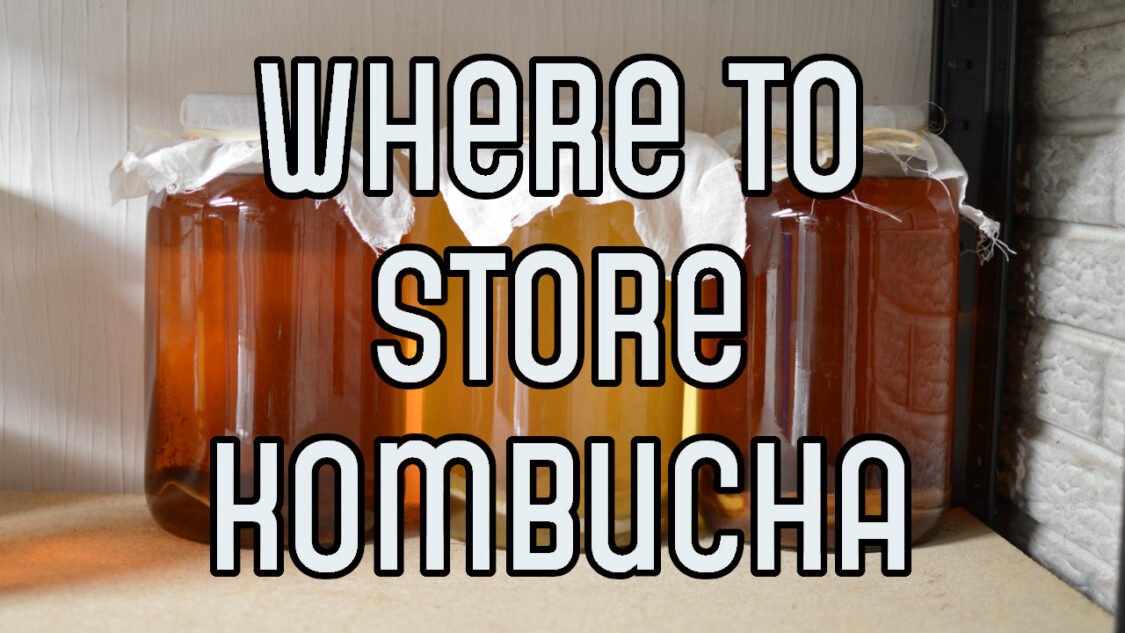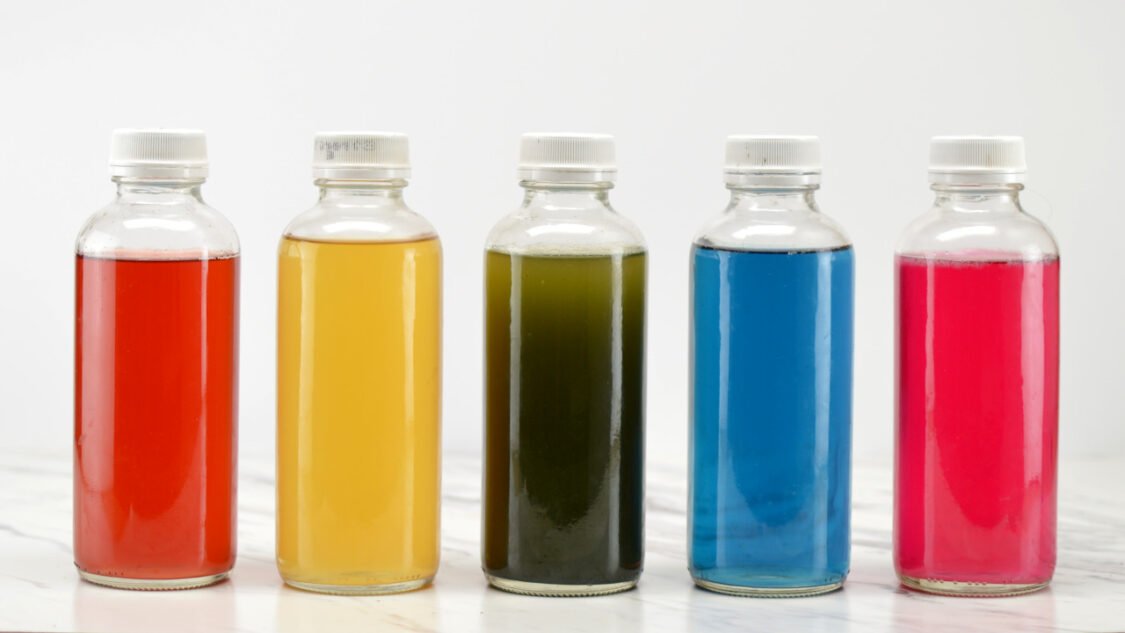Where to Store Kombucha
Where is the best place to keep your kombucha during fermentation? What about when it’s ready? Read more to learn the best practices

Once you’ve decided to take the leap and brew some kombucha at home, one of the more subjective topics is where to keep your kombucha while it’s fermenting to ensure a delicious finished product.
Where to Store Kombucha?
There are several great places in every household for your kombucha to ferment. There are three main points to consider when deciding where to keep it, ideally your spot should be:
- Within the ideal temperature range
- Out of direct light
- Separated from potential contaminants
Store Kombucha at the Right Temperature
Kombucha can be brewed at temperatures from 65-85°F (18-29°C); however I have found the best results are from a temperature range from 75-80°F (24-26°C).
If your house is warm (such as in summer), find a cool spot for your kombucha, like a cupboard, pantry or the basement. Look for an area opposite where the mid-day sun is (in the northern hemisphere you would look for somewhere on the north side of your home.
When temperatures are warm you should taste your kombucha more regularly as it will ferment more quickly.
If your house is cool, look for a warm spot like the laundry room, utility rooms, above a fridge, or near a radiator/heater. Rooms with southern exposure (in the northern hemisphere) but out of direct sunlight is a good choice.
If you continue to struggle with keeping your kombucha at the desired temperature zone, consider purchasing a heat wrap (affiliate link ↗) or mat to go around your fermenting jar and keep it at an ideal temperature.
Store Kombucha Away From Direct Light
Raw kombucha should never be stored in conditions where it’s exposed to direct sunlight or other sources of light. Sunlight contains ultraviolet rays which will harmful the yeast and bacteria in your kombucha. During exposure to UV rays, these microbes get decimated resulting in kombucha with fewer of the desired probiotic benefits.
Always store your kombucha in dark conditions away from any sources of UV rays such as sunlight and incandescent lamps. Keep it tucked away in a pantry or dark spot of the basement or cover loosely with a light resistant cloth.
Keep Kombucha Away From Contaminants
Airborne contaminants such as cigarette smoke, and natural ones like spores of bacteria or fungus from garbage, compost, fruit bowls which can attract mold and fruit flies. Read about fruit flies and kombucha and what to do to keep them away.
Also keep it away from other fermenting foods (like kefir or kimchi) can contaminate your kombucha. Store your kombucha away from these contaminants to avoid weak fermentation and kombucha mold.
You should also avoid placing your fermentor near a fan, such as from a dehumidifier or air conditioning unit as the moving air could stir up contaminants like mold and bacteria which could settle into your fermentor.
Finally, avoid areas with strong artificial fragrances such as laundry room near scented detergents or other cleaning agents with strong aromas. The odds are low but there is a slight chance these aromas could be imparted into your kombucha.

My Kombucha is Done. Now What?
Once your fermentation is complete and you have flavored your kombucha (optional) it is best to store your kombucha in the refrigerator. The pH (acidity) of kombucha enables it to last for several months in the refrigerator. For more on Kombucha and pH, check out my guide to kombucha pH.
The reduced temperature deactivates the enzymes responsible for controlling the metabolism of the yeast and bacteria culture. The yeast cells slow down the breakdown of sugar which means less alcohol is produced which in turn means the bacteria cells have less alcohol to feed on which results in a reduced rate of acetic acid production.
While this process is gradual, it allows the raw kombucha to retain some sugar hence a slightly sweet taste, and there’s less accumulation of acetic acid which means that the brew will not develop a strong vinegary flavor. Read more at how long does kombucha last?
The SCOBY should never be stored in the fridge, and can be used to start the next batch of kombucha. Need to put a pause on brewing? Learn how to take a break from brewing and start a SCOBY hotel.
More on where to Store Kombucha
If you would like to deeper into this topic, there is an excellent scientific paper called Safety Aspects and Guidance for Consumers on the Safe Preparation, Handling and Storage of Kombucha — A Fermented Tea Beverage.
Helping you learn to brew kombucha, find inspiration for new kombucha flavors and use kombucha to make kombucha mocktails




